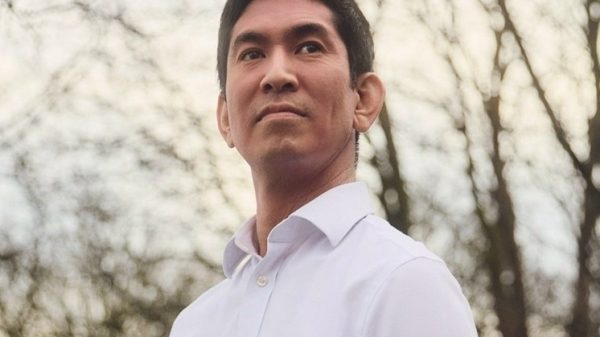 Charlotte Edwards displays the Women's Hundred trophy after leading Southern Brave to the title this summer. Photo: Getty Images/Alex Davidson
Charlotte Edwards displays the Women's Hundred trophy after leading Southern Brave to the title this summer. Photo: Getty Images/Alex Davidson
Charlotte Edwards speaks from Sydney's beautiful eastern suburbs, where she has her eye on the fab five.
This year, Edwards coached the Mumbai Indians to the first Women's Premier League title in India, the Southern Brave their first hundred title and the Southern Vipers the 50-over Rachel Hayhoe-Flint Trophy as well as the Twenty20 competition named in her honor. She's currently preparing for the Women's Big Bash with the Sydney Sixers.
«Tomorrow at training I'll tell the girls, 'No pressure, ladies,'» Edwards laughs. Arguably the greatest player and captain of the England women's team, she has become the most sought after coach of the women's cricket team. She won the Charlotte Edwards Cup last year but finished second in the Hundred, RHF and WBBL. The rate of progress is high.
All this is not accidental. A conversation with Edwards reveals an obvious empathy for her coaching work and deep thoughts about her philosophy of the game.
When she retired from playing more than five years ago, Edwards had a feeling she would end up coaching, but wanted explore its capabilities.
“I think deep down I knew I was going to be a coach,” she says. “Initially, I wanted to spend time away from the game and everyday cricket. I had two years to do all sorts of things. I coached a little, commentated a little, traveled a lot. In general, I did everything that was asked of me. Doing something full-time scared me to death when I stopped. I didn't want that kind of commitment.»
During this time, she worked part-time as a coach for the Southern Vipers, for whom she played late in her career. During the Covid-19 pandemic, she decided to accept a full-time coaching position. The quarantine gave her time to think about what kind of head coach she would like to be.
“I’ve taken something from every coach I’ve worked with as a player or coach,” she says. “Coaching is about listening and taking time, and I think I have succeeded in that. I work according to a very simple scheme. I have three Rs and three Cs that I stand by.
“The three Rs are responsibility, respect and relationships. As a player, I learned that you don't have to like everyone, but you have to respect them. These relationships are very important. Players should not be spoon-fed, they must take responsibility for their play.
“The three Cs are communication, caring and consistency. There is nothing worse than an inconsistent coach who rises when the team is doing well and falls when things are not going well. I live and breathe it and fall back on it when things are going well or going badly.
“I never forgot how difficult this game is. I always tell this to the players. I think quite often players go into coaching and forget that the game is quite difficult. This is where you need to show empathy for the player. I went through it all as a player.»
 Edwards poses with the trophy after winning the 2014 International T20 series against Australia in Sydney: She's hoping to make it big in the city this year. Photo: Getty Images/Mark Nolan
Edwards poses with the trophy after winning the 2014 International T20 series against Australia in Sydney: She's hoping to make it big in the city this year. Photo: Getty Images/Mark Nolan
Edwards believes communication is especially important in women's sports. “Women want to know the details,” she says. “You have to explain the choice clearly to them; contracts. You should communicate with your players regularly to let them know where they stand. It's about managing people. They will get emotional, and that's not a bad thing. Guys throw bats [when they're upset], women cry, and that's not a bad thing. It's all good.”
Edwards faces challenges juggling his jobs, not least because drafts and planning for one competition can happen in the middle of another's season.
Another problem is the huge number of players she needs to develop into strong ones. relationship with. But her four roles can be divided into two parts. The first is franchising jobs in the WPL, WBBL and The 100, where the head coach comes for a few weeks each year to “assist” a group of the best players in the world. Then there's her work in the England and Wales Cricket Board's regional system with the Southern Vipers, «where I actually coach.»
“I’ve had some special moments, but of all my roles, Vipers was my favorite,” she explains. “This is where I truly coach and in turn learn the skills that I use all over the world. I have taken a group of players from amateurs to professionals and now hopefully they will go on to do great things for England. This is where I earned my salt and enjoyed every minute.
“I look at the group of players who are currently playing for England, getting exposure in the franchise leagues. You've got Charlie Dean, Lauren Bell, Freya Kemp, Maya Bouchier, four players who have been with us from a young age and we've seen them really develop as players and people over that time. Kemp is still very young, but has been playing for the Vipers since she was 13 years old. There are girls who have gone from amateurs to really strong professional regional players. Georgia Adams is playing in the WBBL this year.
“I’m good at watching franchise teams, but it’s more difficult with the Vipers. I spend most of my time with them and find it very interesting, especially since they are young and will probably make a few more mistakes. I'm on the verge of a nervous breakdown, I really want them to succeed.
“As lucky as the players are, I was lucky too. I'm doing work that I would do for free. I am fortunate to coach in an era of opportunity. Even 10 years ago, players were retiring and leaving cricket. We lost a lot of good people because the game was not professional. I feel a responsibility to help the next generation of players because there aren't many female coaches. Let's hope there will be more and more of them as opportunities become more numerous. It's great to think about where the game has come in the last five years, and that it has even further to go. I see the coaching landscape changing.”
Edwards says her chaotic freelance life is fun, but she can get tired of it. At this point, the opportunity to play internationally arises.
“It was always an ambition,” says the 43-year-old. “As a player, I always wanted to play for England. Now I want to coach internationally. At the moment it seems to me that this is the right path, although I am a young and energetic coach.
“But at some point I would like to coach at the international level. You see, the Olympics will be held in 2028, and as a player who would like to go to the Olympics, and as a coach, it's the same. Who knows what the future holds, but I'd like to try it.»
At this rate, she'll probably get her chance in England.






















































Свежие комментарии